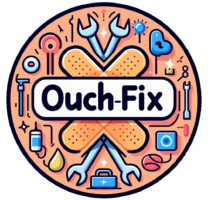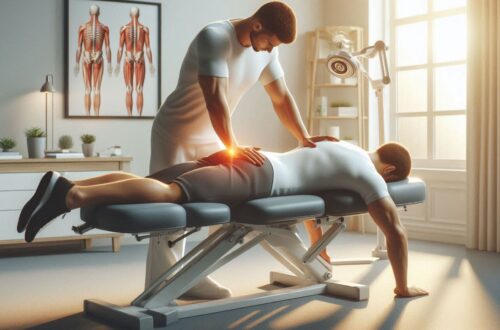Chronic pain affects millions of people worldwide, and its impact goes beyond physical discomfort—it can disrupt work, sleep, and emotional well-being. While medications can help, many experts emphasize natural strategies to manage chronic pain effectively. From simple lifestyle changes to evidence-based therapies, there are numerous ways to reduce pain and improve quality of life.
This comprehensive guide covers the science of pain, its causes, and practical, expert-approved ways to manage it naturally.
Different Types of Pain
Pain is your body’s warning system. It alerts you when something is wrong, from a simple cut to a chronic condition like arthritis. Pain is commonly categorized as:
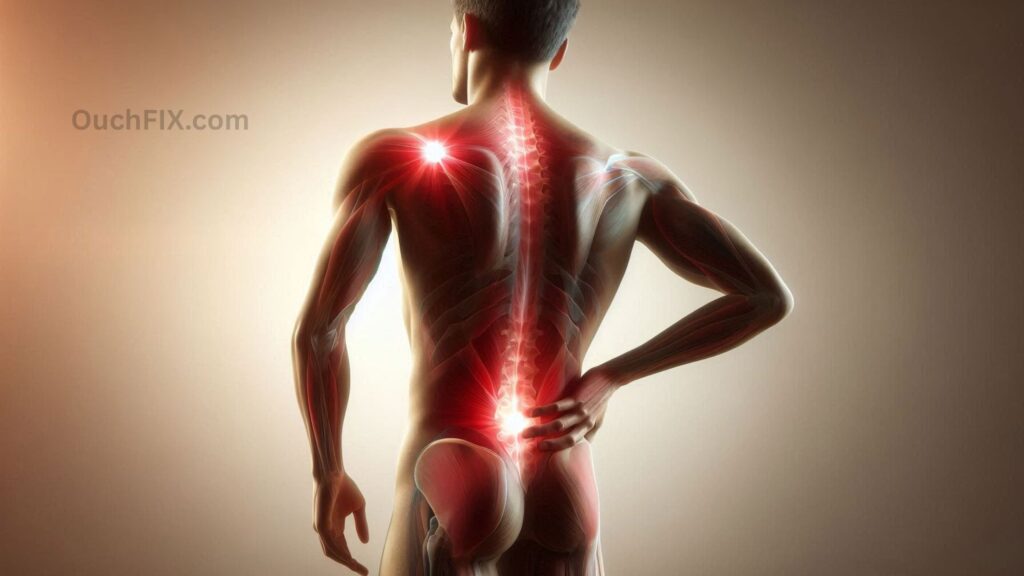
- Acute pain – Sudden onset due to injury or illness
- Short-term, usually resolving within days or weeks
- Chronic pain – Lasts longer than three months
- Can range from mild to severe and may affect multiple areas
- Often accompanied by emotional strain such as anxiety or depression.
Pain is highly personal. Two people with the same condition may experience very different levels of discomfort. Factors like mood, past experiences, and stress can all influence pain perception.
How Pain Works in Your Body
Your body senses pain through specialized receptors called nociceptors, which send signals via two types of nerves:
- Fast signals – Trigger sharp, immediate pain.
- Slow signals – Create dull, lingering aches.
- Certain areas, like your skin, have dense networks of pain receptors, making pain easier to locate. Internal organs have fewer receptors, so pain can feel diffuse or harder to pinpoint.
- When you touch something hot, your nerves send messages to your spinal cord and brain. Reflexes can act before the brain registers the pain—your hand jerks away instinctively. Once signals reach the brain, factors like emotions, previous experiences, and mental state influence how pain is perceived.
- For an in-depth explanation, check Pain on Wikipedia.
Common Causes of Chronic Pain
Chronic pain can arise from various sources, including:
- Injuries: Sprains, fractures, or repetitive strain injuries
- Medical conditions: Arthritis, neuropathy, cancer, fibromyalgia, and back problems
- Post-surgery recovery: Pain that persists beyond typical healing time
Understanding the root cause is crucial for selecting effective management strategies, whether natural, medicinal, or both.
Natural Ways to Manage Pain
Many people find that combining non-drug methods with medical care works best. Experts recommend a multi-faceted approach:
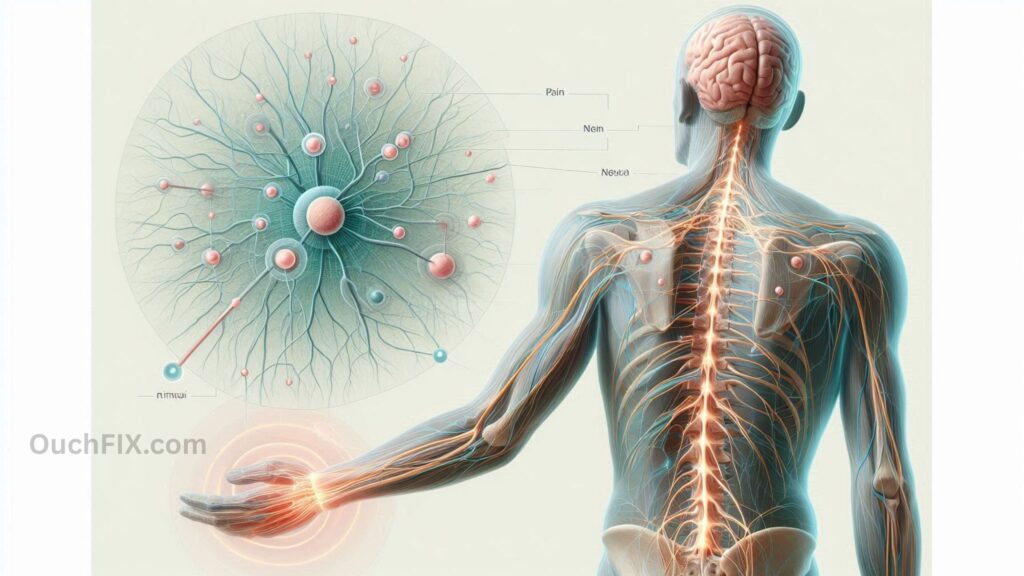
Your body has special sensors called pain receptors, which are connected to two types of nerves:
- One type sends quick messages, causing sudden, sharp pain.
- The other sends slower messages, causing a dull, throbbing ache.
Some parts of your body, like your skin, have lots of pain receptors, so you can easily tell exactly where you’re hurt. Other areas, like your gut, have fewer receptors, making it harder to pinpoint stomach pain.
When you touch something dangerous, like a hot stove, your nerves send a message to your spinal cord and brain. Sometimes your spinal cord reacts immediately, making your muscles jerk away before you even feel the pain — that’s a reflex.
Once the message reaches the brain (specifically a part called the thalamus), it sorts through the information based on your past experiences, beliefs, and even your mood. That’s why everyone feels pain differently.

Also Read: What are the Top Pain Management Tips Recommended by Physiotherapists?
Managing Pain Without Medicine
There are plenty of non-medicine ways to help manage pain, often more effective when combined:

1. Heat and Cold Therapy
- Cold packs: Reduce inflammation after an injury
- Heat packs: Soothe muscle stiffness and chronic joint pain
2. Physical Therapy and Gentle Exercise
- Walking, swimming, and stretching help maintain mobility
- Strengthening exercises can support joints and reduce discomfort
- Gradual progress is key to avoiding flare-ups
3. Massage and Manual Therapy
- Relieves tension in muscles and soft tissues
- Avoid joint-focused massage if inflammation or arthritis is severe
4. Mind-Body Techniques
- Meditation and deep breathing: Calm the nervous system
- Yoga: Combines stretching, breathing, and mindfulness
- Cognitive Behavioral Therapy (CBT): Helps reframe thoughts about pain, reducing emotional distress
5. Acupuncture
- Fine needles stimulate natural pain-relieving chemicals
- Evidence varies, but many patients report meaningful relief
6. TENS Therapy (Transcutaneous Electrical Nerve Stimulation)
- Mild electrical currents stimulate nerves and can reduce pain perception
- Useful for conditions like chronic back pain or neuropathy
Combining several approaches often produces the best results. Consult a healthcare provider to tailor a plan specific to your needs.
When Medication Is Necessary
While natural approaches are beneficial, medications can provide essential relief for moderate to severe pain. Common options include:
- Paracetamol: Reduces pain signals in the brain
- Aspirin: Anti-inflammatory and pain relief
- NSAIDs Reduce inflammation and pain
- Opioids Alter brain perception of pain
- Local anaesthetics: Numb specific areas
- Antidepressants and anti-epileptics: Modulate nerve pain
Safe Use of Pain Medications
- Take medications exactly as prescribed or directed
- Use consistent dosing for chronic pain, rather than “as-needed” only
- Monitor for side effects like liver damage, stomach irritation, or drowsiness
- Avoid self-medicating during pregnancy or with chronic conditions
- Check interactions with other medications
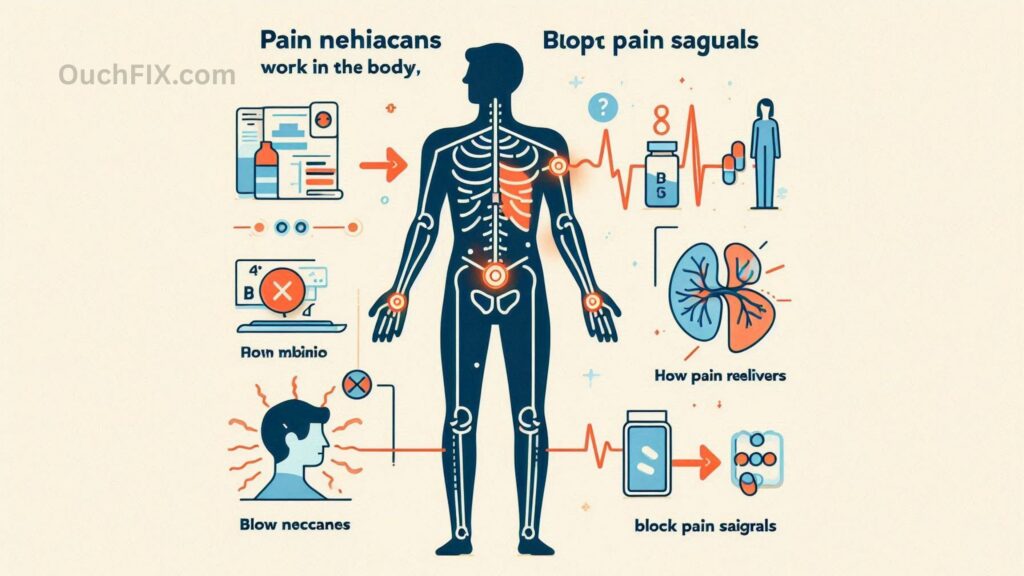
- NSAIDs (like aspirin) reduce inflammation and fever by blocking chemicals called prostaglandins, which cause swelling and pain.
- Opioids work differently; they change how your brain processes pain signals, but they can be addictive.
Tips for Persistent Pain
Chronic pain can feel overwhelming, but several strategies can improve coping and quality of life:
- Focus on what you can do rather than complete elimination of pain
- Prepare for flare-ups and have a plan to manage them
- Stay informed about your condition
- Maintain social connections and support networks
- Keep a healthy lifestyle: balanced diet, adequate sleep, regular activity
- Continue hobbies with modifications to avoid triggers
- Explore new coping strategies, like adaptive exercises or relaxation techniques
Chronic pain management is about consistent, manageable steps rather than quick fixes.

Also Read: What Techniques do Doctors Recommend for Acute Pain Relief?
Using Pain Medicines Safely
Always follow the instructions when taking pain medicines. Doing this helps:

- Manage your pain better
- Avoid needing higher doses
- Lower your risk of side effects
For chronic pain, it’s usually better to take medicines regularly rather than waiting for pain to get worse.
And remember: don’t rely only on medicines. Staying active, pacing yourself, and learning coping strategies can really help.
Common Side Effects
- Paracetamol: Liver damage in excess
- NSAIDs: Stomach upset, high blood pressure, kidney issues
- Opioids: Constipation, drowsiness, addiction potential
Tips for Persistent Pain
Chronic pain can feel overwhelming, but several strategies can improve coping and quality of life:

- Focus on what you can do rather than complete elimination of pain
- Prepare for flare-ups and have a plan to manage them
- Stay informed about your condition
- Maintain social connections and support networks
- Keep a healthy lifestyle: balanced diet, adequate sleep, regular activity
- Continue hobbies with modifications to avoid triggers
- Explore new coping strategies, like adaptive exercises or relaxation techniques
Chronic pain management is about consistent, manageable steps rather than quick fixes.

Also Read: What are the Latest Expert‑Approved Methods for Injury Recovery?
Conclusion
Managing chronic pain naturally is about combining multiple strategies—movement, mind-body techniques, lifestyle adjustments, and when needed, safe medication use. By creating a personalized plan and staying consistent, you can reduce pain, regain mobility, and improve overall quality of life.
Expert FAQs on Chronic Pain Management
Q1. Can natural methods cure chronic pain?
They may not eliminate pain completely, but can reduce intensity and improve daily functioning.
Q2. Is exercise safe for people with chronic pain?
Yes, low-impact exercise like swimming, yoga, or walking can help. Start slowly.
Q3. Are opioids always necessary?
No. They’re reserved for severe or unmanageable pain due to addiction risk. Non-drug strategies are often safer first steps.
Q4. How long does it take for CBT to be effective?
Improvements can appear in weeks, but sustained results usually take months.
Q5. Can diet influence pain?
Yes, anti-inflammatory foods like leafy greens, berries, and fatty fish can help reduce inflammation.
